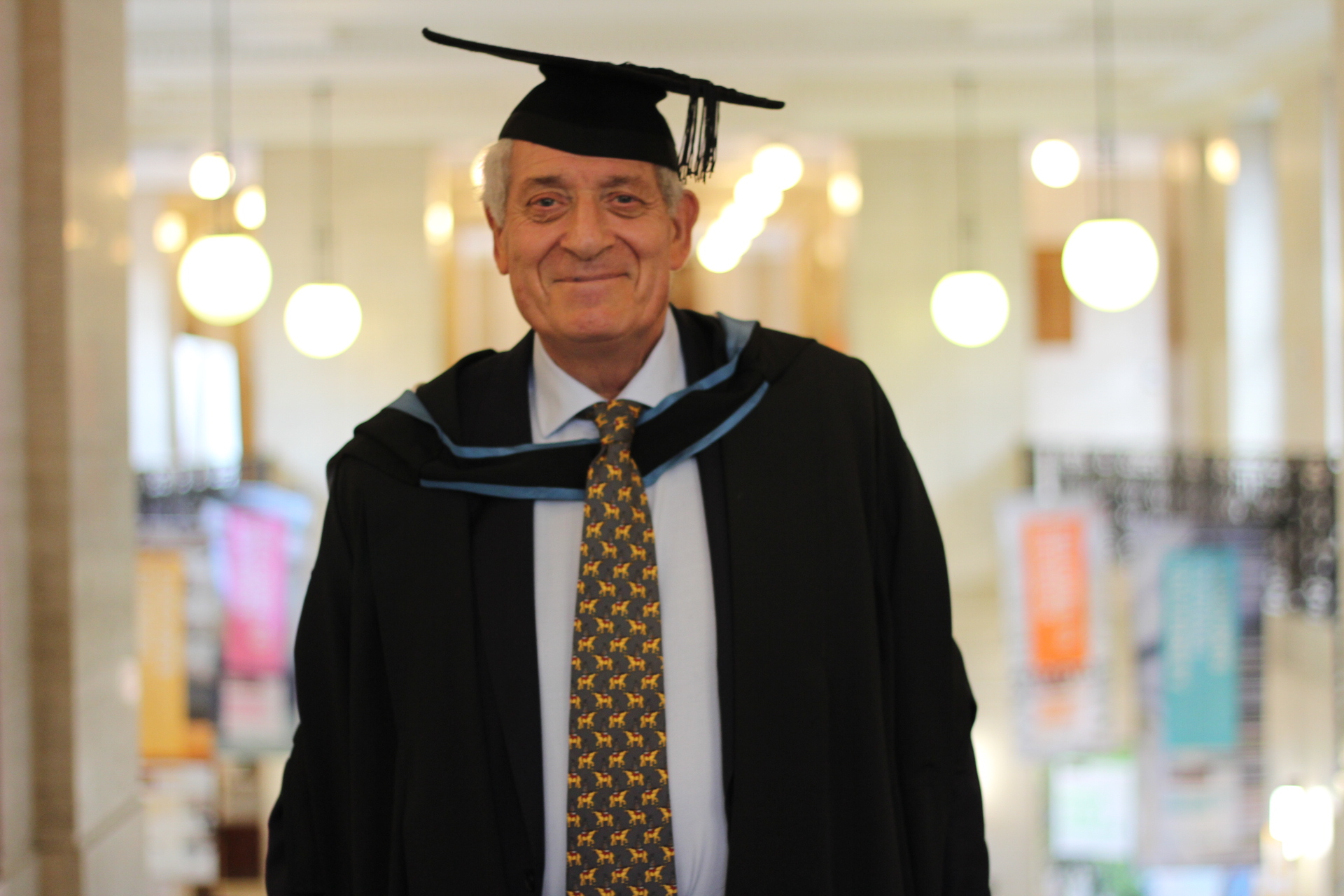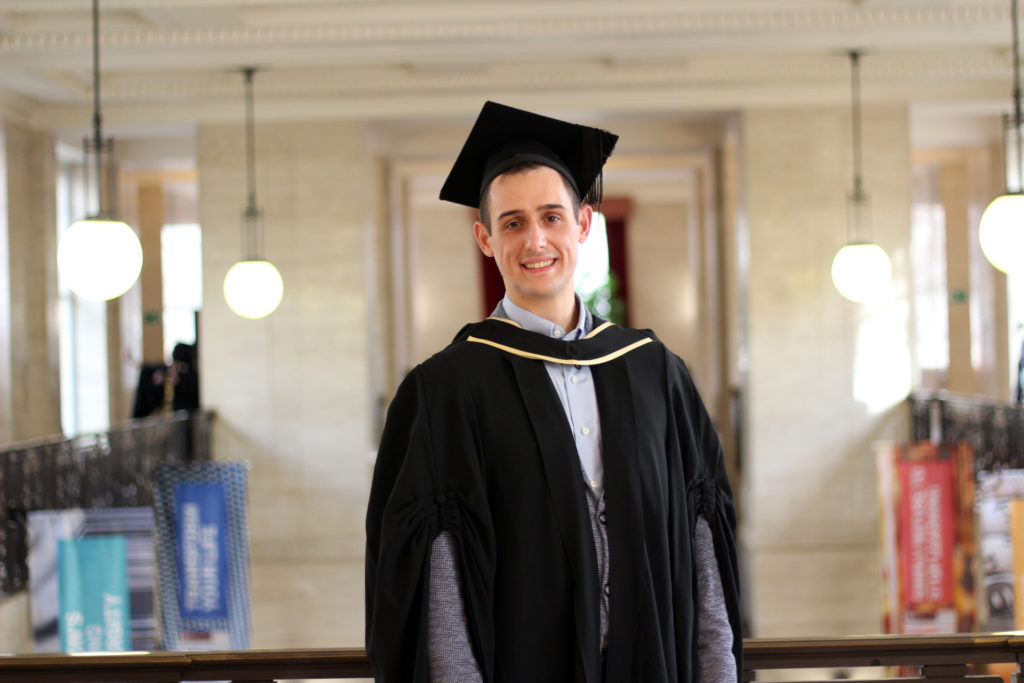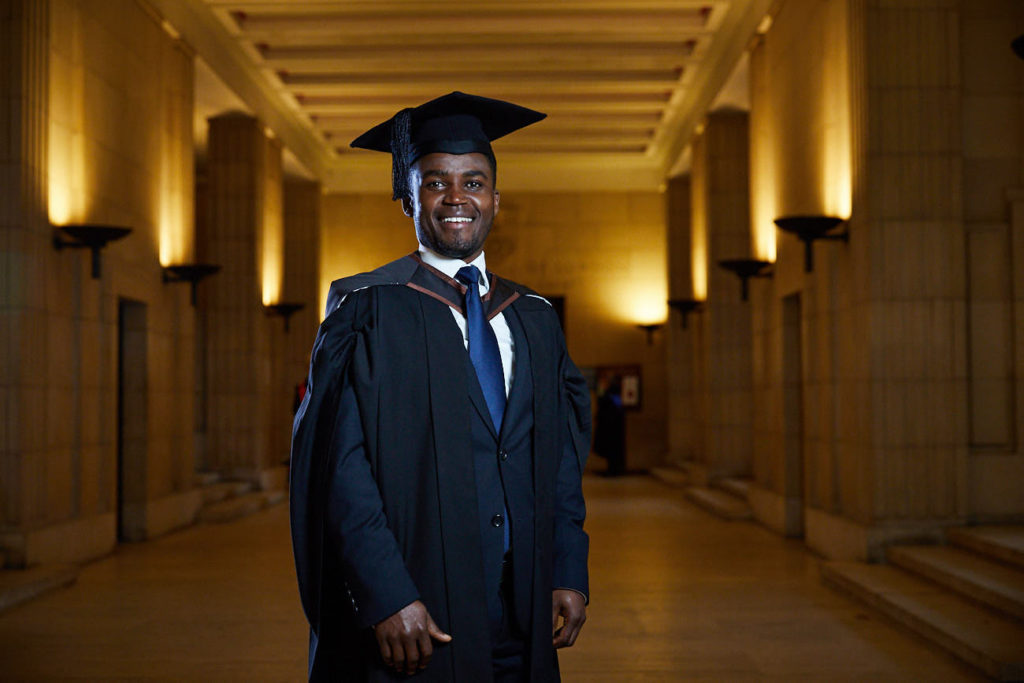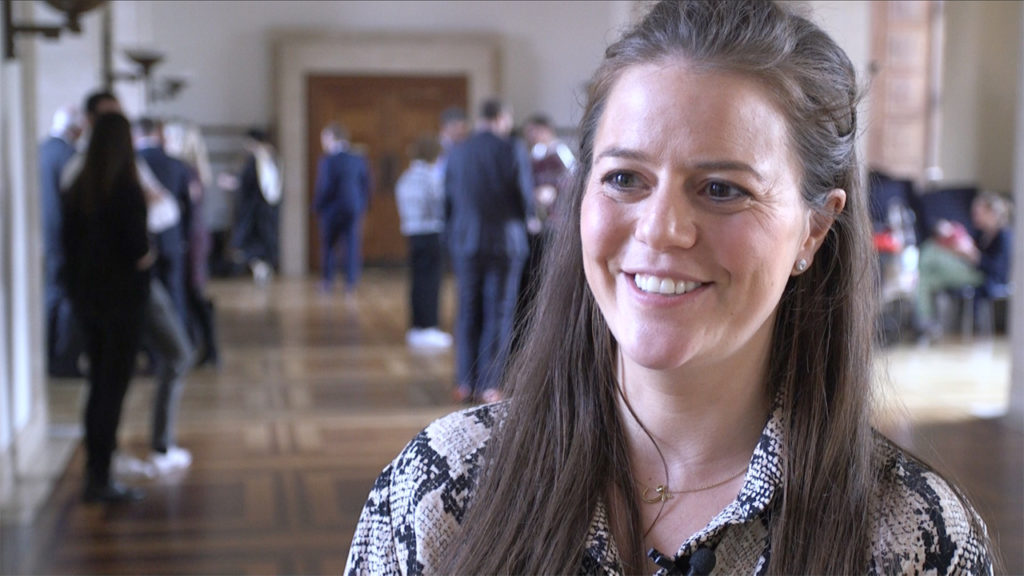Former television presenter and journalist Gavin Campbell grew up in a house full of books, jazz, and intellectual discussion, and credits his parents for instilling his love of learning. His successful TV career brought him into contact with various aspects of the law, sparking an interest in human rights, criminal law, and in particular the uses and abuses of custody. He chose to pursue this further by undertaking an LLB at Birkbeck, which he graduated from this week aged 73, and in a new career as a paralegal.
He follows in his mother’s footsteps, who, despite leaving school at 14, was able to pursue her own scholarly interests later in life, gaining a BA from the Open University in her eighties. His father, having been seriously wounded at Dunkirk, spent much time in military hospitals studying, with a particular interest in the early Greek and Roman periods.
He says: “I think it was my parents’ attitudes to learning – to never be afraid to question that to think that one might be able to achieve something – that made me believe I could.”
He left Drama School to pursue acting work, before training as a journalist and joining the BBC’s current affairs unit, working on That’s Life, and other features and current affairs programmes. However it was his work as an investigative reporter which brought him into frequent contact with various aspects of the law and accelerated his interest in the subject.

“A short documentary that I reported on following the suicide of a young teenager at a Young Offender’s Institution, gave me an insight into and a further interest in the use of custody in the UK,” he remembers, “an interest which has deepened and led to an undergraduate dissertation on Restorative Justice for my LLB at Birkbeck.”
“Although a tough regime in terms of the reading and essay writing, preparing for and attending lectures and seminars, I loved the subject and was hugely encouraged by some remarkable teachers.”
His advice for an older person who may be worried about starting university and whether they can make a go of it, he says, is simple and straightforward: “everyone has talent, and talent will out; it’s just a question of finding the right outlet for it. Ask yourself why you want to study. Finding the right subject – something that fascinates you and you really have a need to find out about and explore – is essential if you are going to be able to enjoy it and sustain the effort required over three or four years.”
“Everyone finds some aspects of study difficult, so don’t expect that there won’t be times when you think ‘I can’t get this’ – there will be. But don’t ever be afraid to ask for help – your Personal Tutor, the academic teaching the subject, your fellow students. There are always solutions; it’s just a question of getting help and advice to find them.”
“Lastly, and really importantly, make sure that you have the support of your family in undertaking a degree. Discuss it with them first, explaining what it is, why it’s so important to you to undertake it and what the likely and possible demands it may make on the family life are. Honesty is the very best policy here. A united, agreed start is the best start to studying.”
He is doubtful about whether he could have finished the degree without “the kindness, encouragement, help and support from the Birkbeck teaching and administrative staff,” who he says were central to his studies. “The inclusive and open atmosphere of Birkbeck and the sense of ‘you can’ is, I believe, perhaps the most important aspect of studying here. Never once was I told that I couldn’t, or that it would be too difficult. On the contrary, at every turn I was encouraged to continue, to work hard, to feel able to approach staff with a difficulty and seek a solution – and never to lose sight of the fact that there is no such thing as ‘can’t’”.
He is now working for a firm of solicitors with a practice focused on immigration, personal injury, public law and human rights, which he combined with his studies at Birkbeck. He is currently working on the Grenfell Tower Fire Inquiry, where his firm represents many of the bereaved survivors and relatives of the 72 victims of the tragic fire.


